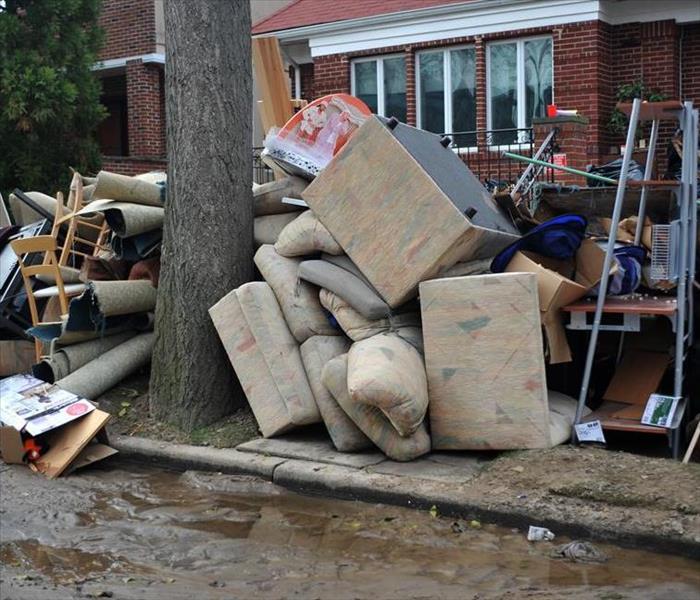Content Cleaning: What To Keep and What To Toss
1/19/2022 (Permalink)
The recovery process after a significant storm can be daunting, especially as you consider all of the steps involved in content cleaning. The good news is that Colorado Springs, CO, storm and water damage cleaning and recovery teams can help you through the process with professional equipment and techniques:
- Dry and foam cleaners
- Immersion cleaning equipment
- Spray and wipe supplies
The more you know about how to respond to a flood, the better you'll be prepared to avoid problematic damage and expensive repairs.
The Ins and Outs of Content Cleaning
One of the first areas of concern after your home is affected by flooding, especially black water, is content cleaning. This refers to all of the contents in your home that can be salvaged. Once your home has been inspected by the appropriate professionals, you can begin sorting belongings into a pile of things that must be thrown out and an assortment of items that can be cleaned and repaired.
Things To Throw Away
Some items absorb contaminants or leach toxins as they become waterlogged. These porous items should be thrown out:
- Furniture left in water for multiple days
- Carpets that come apart in your hand
- Furnishings with running dye, especially blue
- Items that smell bad or have evidence of mildew
- Swollen or warped wood pieces.
Other items, such as mattresses and books, are usually cheaper to replace than to try to clean and repair. For your safety and your family's safety, always throw out food that has come into contact with water (including pet food) and medications that have been exposed to the water.
Things You Can Salvage
Although any type of water can cause serious damage to your property, some water is dirty enough that you should throw out anything that has been affected. That being said, if your flood consisted of clean water, there are many things you can keep:
Appliances
Electronics
Toys
Important paperwork
Family heirlooms
Photographs
If Colorado Springs, CO, water damage cleanup and mitigation crews arrive quickly to clear away water and dry your home, it is possible for you to save carpets and furniture. If you own something that is expensive or has a lot of sentimental value, reach out to specialists in restoration and repair for help.
Areas of Concern
While you're focused on moving furnishings and belongings out of your home, there are some things you should be aware of:
Floors and walls could have been weakened; be careful where you step or lean.
Porous materials may become moldy. If there is any evidence of mold contamination, these items should be thrown out.
Floodwater may carry hazardous contaminants; wear protective clothing while you work.
When handling appliances or fragile belongings, further damage could occur. Be very careful when lifting and transporting belongings.
Moisture and mold spores can be spread from the affected areas of your home into areas that were initially unaffected. Take care to seal off those separate areas to prevent causing new damage.
You may be anxious to get into your home and begin the cleanup process after flooding. Your first concern, however, should be safety. Wait until you have permission from local authorities before you begin working on content cleaning and other recovery efforts.



 24/7 Emergency Service
24/7 Emergency Service
